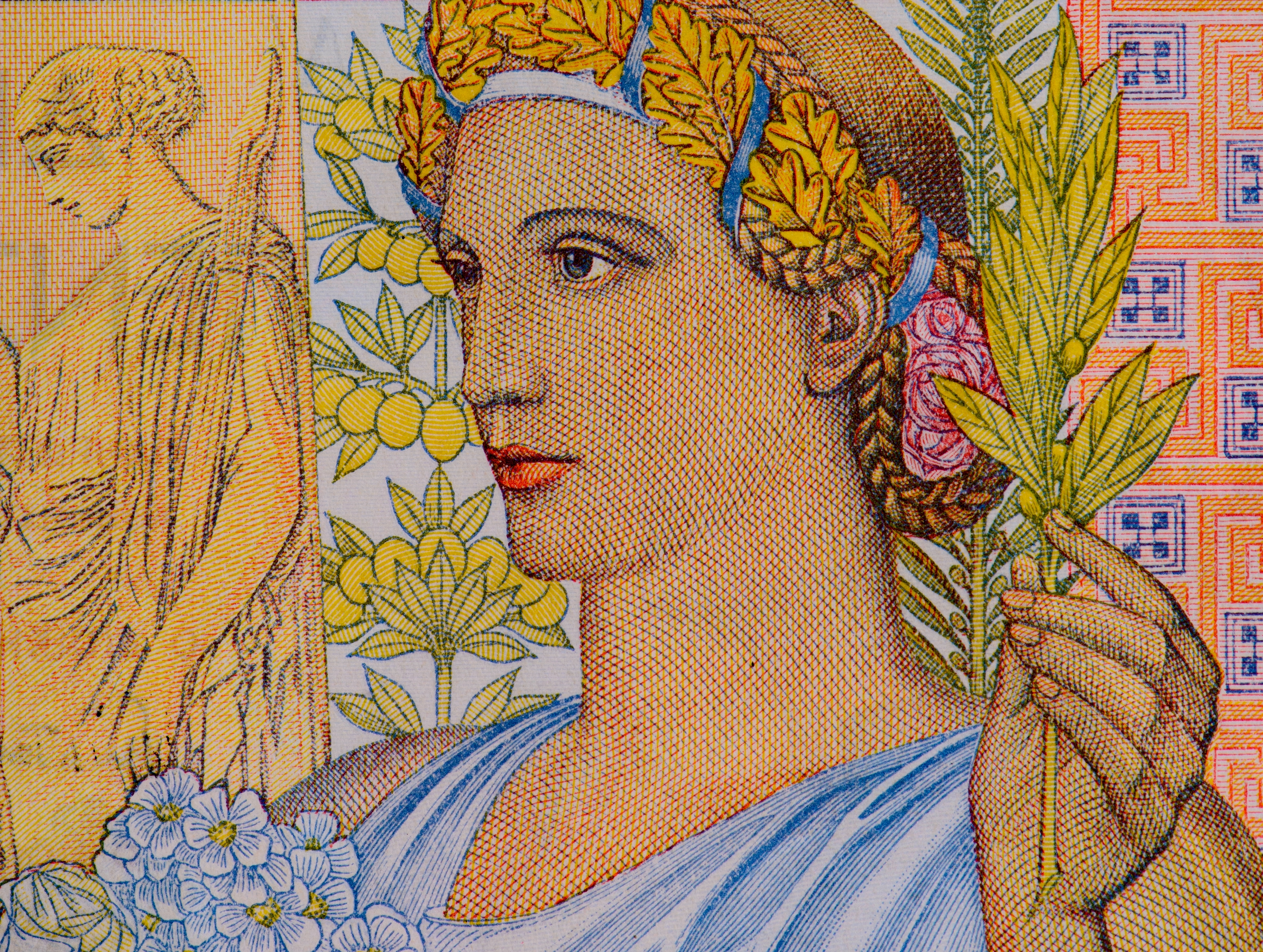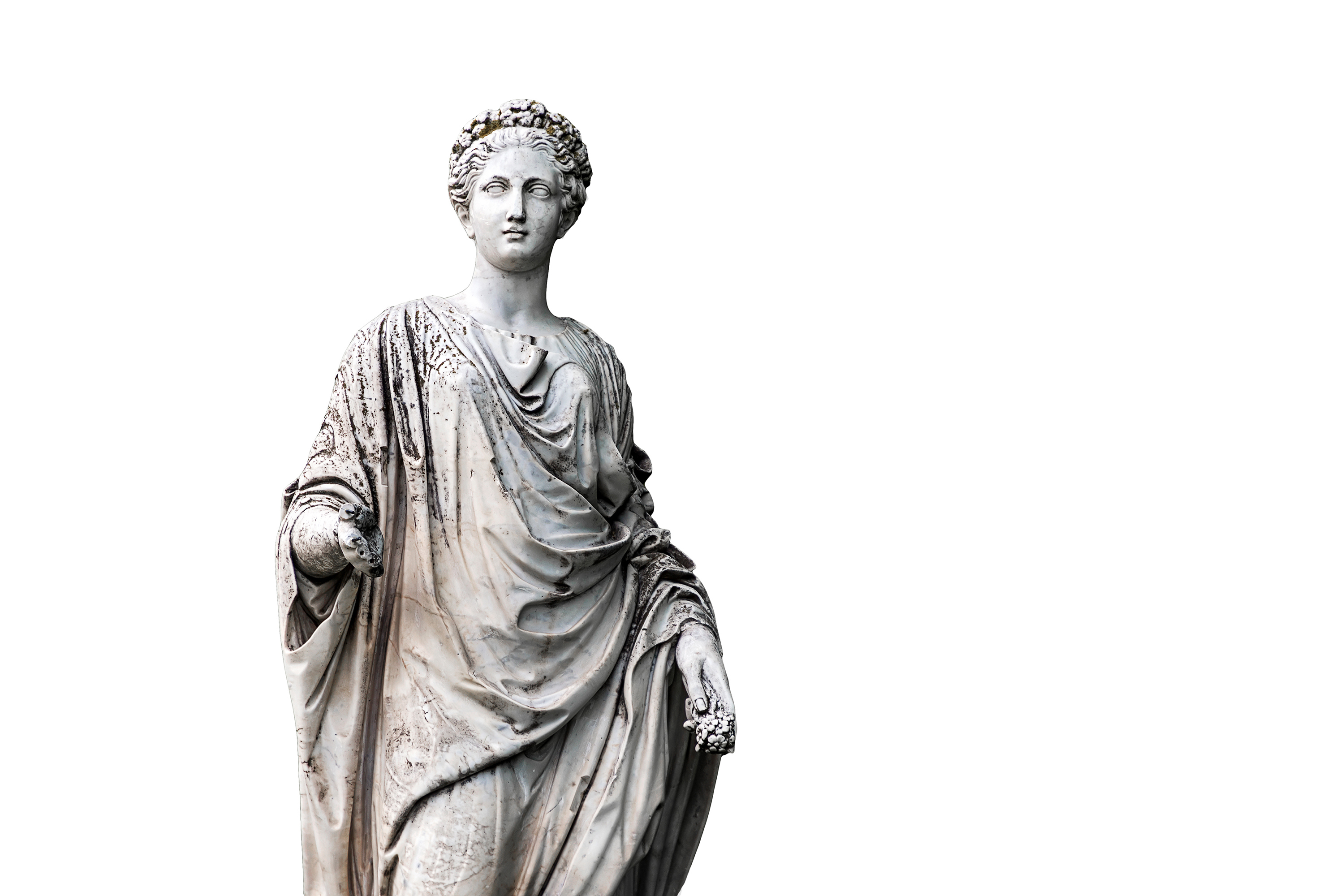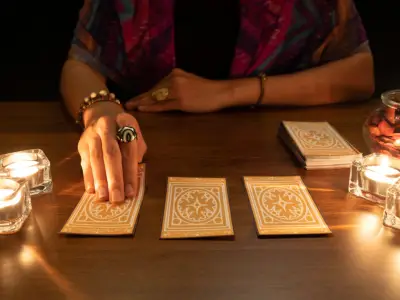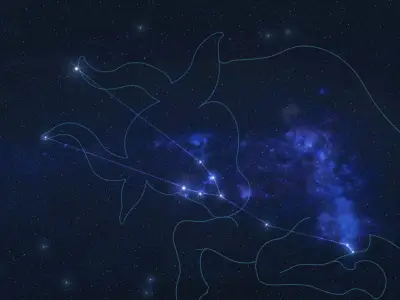Greek mythology is a treasure trove of stories that have fascinated people for centuries. Among the gods and goddesses, Demeter holds a special place as the goddess of agriculture, harvest, and fertility. Her story touches on themes of love, loss, and reunion.
Whether you're a long-time lover of mythology or newly curious, let's delve into the world of Demeter, exploring her family ties, myths, and unique characteristics.
Jump to:
Who is Demeter?

Demeter is a central figure in Greek mythology, known as the goddess of agriculture, harvest, and fertility. Her Roman name is Ceres, from which we derive the word "cereal". As a deity responsible for the growth of crops and the nourishment of the earth, Demeter's influence was fundamental to the ancient Greeks' survival and well-being.
Demeter’s Myths and Legends
Demeter is central in numerous myths and legends, each rich with symbolism and moral lessons. Her stories reflect human nature, the cycles of life, and the interconnectedness of the natural world. Let's explore four myths that highlight different facets of this powerful goddess.
The Myth of Persephone and Demeter
The story of Demeter and her daughter Persephone is a foundational myth that explains the changing seasons. Persephone was abducted by Hades, the god of the underworld, which plunged Demeter into grief. In her sorrow, Demeter withheld fertility from the earth, leading to barren lands and the threat of starvation among humans.
The earth's plight eventually prompted Zeus to intervene, resulting in Persephone dividing her time between the underworld and the earth's surface. Her return each spring symbolises rebirth and fertility, while her departure to the underworld marks the beginning of the barren winter months.
The Creation of the Cornucopia
One lesser-known myth involves Demeter and the creation of the cornucopia, also known as the Horn of Plenty. In her quest to find Persephone, the story goes that Demeter came across a starving boy. Moved by his plight, she sought to feed him a mixture of barley and water.
Attempting to make this simple meal divine, she tried to bless the boy but was interrupted by his mother, who misunderstood Demeter's intentions. In her anger, Demeter transformed the boy into a lizard. However, feeling remorseful for her actions and the grief she caused the boy's mother, Demeter created the cornucopia. This magical horn would forever produce endless food and drink, ensuring no one would suffer from hunger again.
The Nursing of Demophoon
Another touching story is that of Demophoon, the infant son of Metaneira, whom Demeter attempted to make immortal. In her disguise as an old woman during her search for Persephone, Demeter was welcomed into the home of Metaneira. In gratitude, Demeter offered to nurse the queen's youngest son, Demophoon.
Each night, Demeter anointed the boy with ambrosia and placed him in the fire, burning away his mortal parts. However, when Metaneira witnessed this, she cried in terror, preventing the ritual's completion. Though Demophoon remained mortal, this myth illustrates Demeter's nurturing aspect and desire to bring the gift of immortality to those she cared for.
The Foundation of Eleusis,
The myth of the foundation of Eleusis, revolves around Demeter's establishment of her sacred city and the Eleusinian Mysteries, a set of secret rites performed in honour of Demeter and Persephone.
After Persephone's abduction, a grieving Demeter wandered the earth. She arrived at Eleusis and, under the guise of an old woman, was taken in by the royal family. To thank them for their hospitality and to commemorate her search for Persephone, she taught the people of Eleusis the art of agriculture. She also established the Mysteries, a festival that celebrated the cycle of life and death and promised initiates a more favourable fate in the afterlife. This myth highlights Demeter's influence on the spiritual and cultural practices of the ancient Greeks.
Symbols and Powers of Demeter
The symbol of Demeter often includes sheaves of wheat or a cornucopia, representing abundance and fertility. Her powers extend beyond agriculture, embodying the cycle of life, death, and rebirth itself. This duality of nurturing and loss is a testament to Demeter's profound connection with the natural world and its inhabitants.
Demeter's Characteristics
Demeter is often depicted as a mature woman, radiating a motherly and nurturing presence. Let’s look at her characteristics:
- Maternal and Nurturing: Demeter embodies the essence of motherhood, offering care, warmth, and protection. Her presence is reassuring, symbolising the unconditional love and support found in maternal figures.
- Goddess of Agriculture: She is intimately connected with the earth, overseeing the growth of crops and ensuring the fertility of the land. This role highlights her as a provider of sustenance and life.
- Powerful: Demeter possesses significant divine power, capable of influencing the natural world. Her control over the seasons and the growth of all plant life underscores her strength and importance among the gods.
- Compassionate: Her actions are often driven by compassion, particularly evident in her relentless search for Persephone and her sorrow for the suffering of humanity during winter.
- Symbol of Fertility: Beyond agriculture, Demeter represents fertility in a broader sense, including the fertility of the earth and the cycle of life and death.
- An Embodiment of the Earth's Richness: Her depiction with golden or earth-toned hair symbolises the bounty and richness of the soil, reflecting her deep connection with the land's vitality.
- Guardian of the Sacred Law: Demeter is also seen as a guardian of the sacred laws of hospitality and the protector of the sanctity of marriage and the family.
- Teacher of Agriculture: She is credited with teaching humanity the art of agriculture, sharing knowledge of planting, harvesting, and respecting the earth.
- Bearer of Seasons: Through her emotions and actions, Demeter controls the cycle of the seasons, her grief bringing winter's barrenness, and her joy heralding the return of fertile spring.
- Resilient: Despite her trials, Demeter's resilience is evident as she navigates loss, conflict, and reconciliation, embodying the enduring spirit of life's cycles.
Demeter’s Family Tree

Demeter's family tree is as intriguing as it is complex. She is one of the six children of Cronus and Rhea, making her a sibling to some of the most prominent figures in Greek mythology, including Zeus, Hera, Poseidon, Hades, and Hestia.
Among her many roles, being the mother of Persephone is perhaps the most significant, playing a pivotal role in one of the most compelling stories of Greek mythology.
Demeter's Parents and Siblings
- Cronus and Rhea: Demeter's parents. Cronus was the Titan king who, fearing a prophecy that he would be overthrown by one of his children, swallowed each of them at birth. Rhea, his wife and sister, managed to save the youngest, Zeus, who eventually freed his siblings and led the revolt against Cronus.
- Zeus: The king of the gods and ruler of Mount Olympus. Zeus is Demeter's brother and, interestingly, also the father of her daughter, Persephone. This dual role underscores the complex and often intertwined relationships among the gods.
- Hera: Zeus's wife and sister, the goddess of marriage and birth. Hera and Demeter share a bond as sisters, navigating the complexities of their family dynamics and their roles as mothers within the pantheon.
- Poseidon: The god of the sea, earthquakes, and horses. Poseidon is another of Demeter's brothers, and their interactions are notable, including a myth where Demeter transforms herself to escape his advances, highlighting the intricate narratives that define these divine relationships.
- Hades: The god of the underworld and another brother of Demeter. Hades plays a key role in Demeter's story through the abduction of Persephone, leading to the creation of the seasons in Greek mythology.
- Hestia: The goddess of the hearth, architecture, and the right ordering of domesticity, family, and the state. As Demeter's sister, Hestia represents the warmth and stability of the home, contrasting with Demeter's domain over the earth and fertility.
Demeter's Daughter and the Cycle of Seasons
- Persephone: Demeter's beloved daughter with Zeus. Persephone's abduction by Hades and subsequent return from the underworld is central to Demeter's myth, explaining the cycle of the seasons. Her time in the underworld corresponds with the barren winter months, while her return to the earth's surface brings about spring and the rebirth of nature.
Demeter's Relationships
Demeter's relationships with other deities are complex and fascinating. Despite her nurturing nature, her story is not without conflict.
Demeter and Zeus: A Complex Alliance
The relationship between Demeter and Zeus, her brother and the king of the gods, is complex. Beyond their sibling connection, they share a parental bond with Persephone, whose life and experiences directly influence their interactions.
This shared concern for Persephone's welfare often brings them together in cooperation, yet it can also lead to tension. For instance, Zeus's decision to allow Hades to abduct Persephone without Demeter's knowledge creates a rift between them, showcasing the delicate balance between their familial bonds and their respective divine duties. Despite this, their story is one of reconciliation and the power of parental love as they ultimately negotiate Persephone's return to the earth for part of the year.
Conflict and Love: Poseidon and Demeter
Demeter's relationship with Poseidon, her brother and the god of the sea, further illustrates the theme of conflict and compromise that runs through her mythology. In one myth, Poseidon pursues Demeter, who resists his advances by transforming herself into a mare. In his determination, Poseidon transforms himself into a stallion to capture her, resulting in the birth of Arion, a divine horse.
This story highlights Demeter's desire for autonomy and her assertive steps to maintain it, even in the face of unwelcome pursuits by her peers. It also reflects the ancient Greeks' understanding of the natural world's forces—sometimes harmonious, sometimes clashing, but always interwoven.
Demeter's Aversion to Hades
Perhaps the saddest of Demeter's divine relationships is her aversion to Hades, her brother and the god of the underworld. Hades's abduction of Persephone leads to the most significant myths in Greek mythology, deeply affecting Demeter's actions and emotions. Her grief and anger at Hades's actions cause the withering of the earth, demonstrating her connection to life and fertility.
Yet, this conflict also results in the establishment of the seasons and the cyclical nature of growth and decay. Through this myth, Demeter's relationship with Hades embodies the themes of loss, resilience, and the eventual acceptance of the natural order.
The Power of Maternal Love
Across these relationships, Demeter's character is consistently marked by her maternal instincts and fierce protection of her children, particularly Persephone. Her actions, driven by love and sometimes despair, underline the universal themes of maternal love and its capacity to transcend the boundaries of the mortal and divine worlds.
The Powers of Demeter

Demeter's array of divine powers underscores her importance in Greek mythology, showcasing her as a deity deeply intertwined with the natural world and the human condition. Here are her three main powers:
- Control Over Agriculture: Demeter can promote the growth and health of crops. She can cause plants to flourish, ensuring bountiful harvests that sustain human life.
- Influence on the Seasons: Her emotions and actions directly affect the earth's seasonal cycles. Demeter's grief brings about winter, while her joy ushers in the spring, demonstrating her control over the changing seasons.
- Guardian of Fertility: She blesses the earth with fertility, making barren lands fertile again. This power extends beyond crops to all aspects of life, embodying the cycle of birth, growth, death, and rebirth.
Demeter and the Modern World
The legacy of Demeter extends beyond ancient myths into the modern world. She embodies the principles of nurturing and growth, encouraging us to respect and protect the natural world. Her story reminds us of the delicate balance between humanity and nature, urging us to act as stewards of the earth.
Demeter in Greek Mythology: Frequently Asked Questions
What is Demeter famous for?
Demeter is most famous for being the Greek goddess of agriculture, harvest, and fertility. Her myths explain the cycle of the seasons, particularly through the story of her daughter, Persephone's abduction by Hades, which leads to the barren winter months and fertile spring.
Did Zeus and Demeter have a child together?
Zeus and Demeter had a daughter named Persephone, whose story is central to explaining the changing seasons in Greek mythology.
What is the story of Greek Demeter?
The core story of Demeter involves her search for her daughter, Persephone, whom Hades abducted. Demeter's grief causes the earth to become barren, leading to the creation of the seasons when a deal is struck for Persephone to spend part of the year with Hades and part on Earth.
Is Demeter a good goddess?
Demeter is generally depicted as a kind and generous goddess, nurturing the earth and humanity with fertility and the harvest. Her myths often highlight her deep love and care, especially towards her daughter and humanity.
Did Demeter and Poseidon have a child together?
According to some myths, Demeter and Poseidon had a child named Arion, a divine horse born after Poseidon pursued Demeter, who transformed herself into a mare to escape him.
Was Demeter married to Hades?
Demeter was not married to Hades. Hades is Demeter's brother and the abductor of her daughter, Persephone.
What happened between Hades and Demeter?
Hades abducted Persephone to be his wife in the underworld, leading to Demeter's grief that affected the earth's fertility until Zeus negotiated Persephone's partial return to the surface.
What is the famous line of Demeter?
While there isn't a single famous line universally attributed to Demeter, many of her mythological statements emphasise her role as the protector of the harvest and her deep love for her daughter, Persephone.
Who are the lovers of Demeter?
Demeter's lovers include Zeus, with whom she had Persephone, and Poseidon, with whom she had the horse Arion. Her relationships highlight her fertility and maternal aspects.
What are the 3 powers of Demeter?
Demeter's three main powers include control over agriculture and crops, the ability to change the seasons, and the guardianship of the earth's fertility, making barren lands fruitful again.
Is Demeter Hades' sister?
Demeter is the sister of Hades. They are both children of the Titans Cronus and Rhea.
Did Poseidon fall in love with Demeter?
According to myth, Poseidon did pursue Demeter, who was uninterested and tried to escape his advances by transforming into different forms.
Why does Demeter hate Hades?
Demeter's dislike for Hades stems from his abduction of her beloved daughter, Persephone, causing Demeter immense grief and the earth to suffer.
What colour is Demeter's hair?
Demeter is often depicted with golden or earth-toned hair, symbolising the ripe wheat and the earth's fertility she governs.
Does Zeus sleep with Demeter?
In mythology, Zeus and Demeter, being deities, have a complex relationship that includes them being parents to Persephone, indicating a union in some myths.
What is Demeter's nickname?
Demeter is sometimes referred to by titles highlighting her dominion, such as "Thesmophoros", for her association with the sacred laws and the cycle of life and death.
Recommended for you!
Best SellersDiscover the Riches of Greek Mythology with Centre of Excellence
Dive into the captivating world of gods, goddesses, and legendary heroes with our Greek Mythology Diploma Course. Crafted for newcomers and experts alike, this course offers a deep dive into the ancient narratives that have shaped cultures and inspired countless generations.
Why Centre of Excellence Stands Out:
- Inclusivity at Its Core: We believe education is a right, not a privilege. That's why we've structured our pricing to be as inclusive as possible, ensuring that these ancient tales are accessible to everyone.
- Learn on Your Terms: Our courses are designed with your lifestyle in mind. Flexible learning paths allow you to absorb the wonders of Greek mythology at your own pace, fitting seamlessly into your existing schedule.
- A Broad Spectrum of Knowledge: From tades to the heights of Olympus, our curriculum spans the vast expanse of Greek myth, catering to a wide range of interests and expanding your understanding of this fascinating subject.
- Dedicated Support: Enrollment includes access to personalised tutor support and a vibrant community of fellow myth enthusiasts offering encouragement and assistance throughout your educational journey.
Special Offer:
We're excited to present our Greek Mythology Diploma Course, now available at the exclusive price of £29 for a limited time—saving you over £100!













